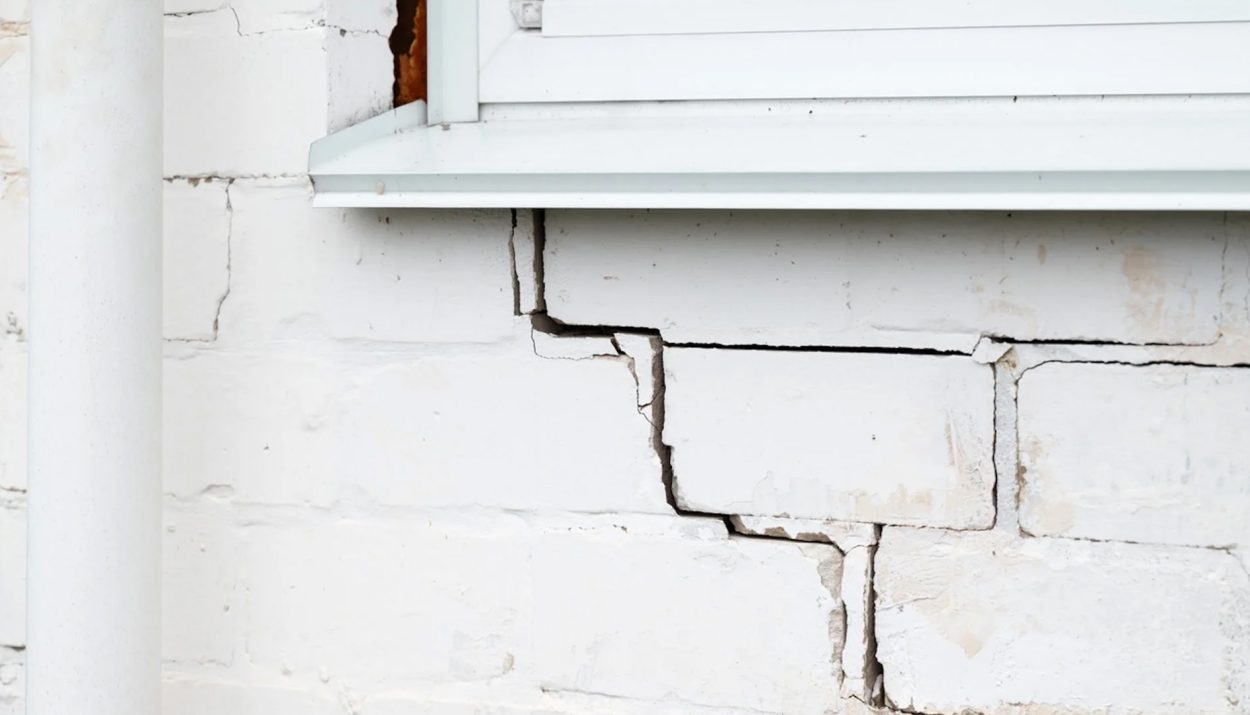Citizens of rural Arizona are facing an unprecedented water crisis as foreign companies have begun extracting massive amounts of groundwater to export overseas. Saudi Arabian agricultural corporations have purchased large swaths of farmland. They are now depleting local aquifers at an alarming rate, causing wells and reservoirs across several counties to run dangerously low.
Water Depletion Through Unregulated Pumping
The communities in the McMullen Valley of Arizona have been experiencing devastating effects of unregulated groundwater pumping by companies. As businesses from the United Arab Emirates have been leasing land to extract groundwater in large volumes for free, the water table has been dropping at an alarming rate.
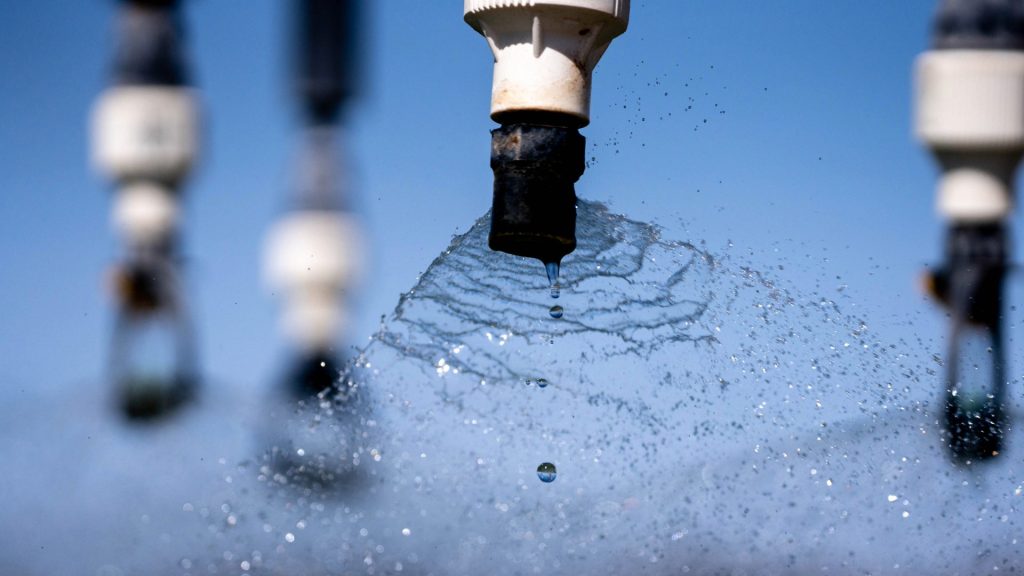
According to the Arizona Attorney General, the town of Wenden has sunk by four feet due to the massive amounts of water pumped out by Emirati companies for industrial farming.
A Man-Made Disaster in the Making
The situation in McMullen Valley highlights the need for regulating groundwater usage and protecting local communities that depend on it. Unfettered pumping by large corporations motivated by profits threatens to turn the water crisis into a disaster.
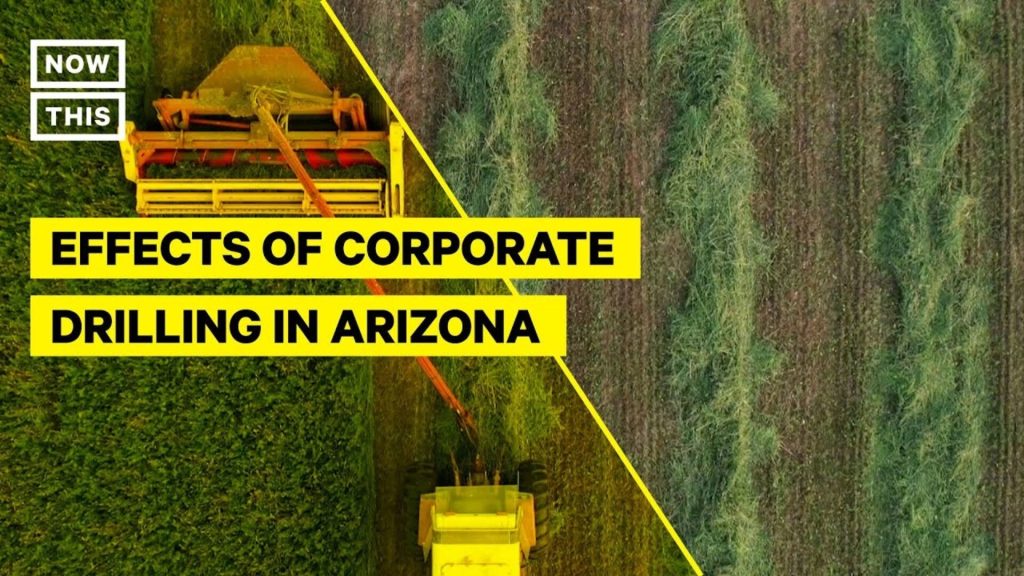
Local representatives fear that if left unaddressed, more wells will dry up, and water quality will deteriorate further. The state needs to balance the needs of businesses with environmental sustainability and the well-being of its citizens.
Unregulated Drilling
La Paz County Supervisor Holly Irwin first raised concerns about land subsidence in the region in 2010 and requested updated hydrological studies to determine how much groundwater was left, but as of 2024, no new studies have been conducted.
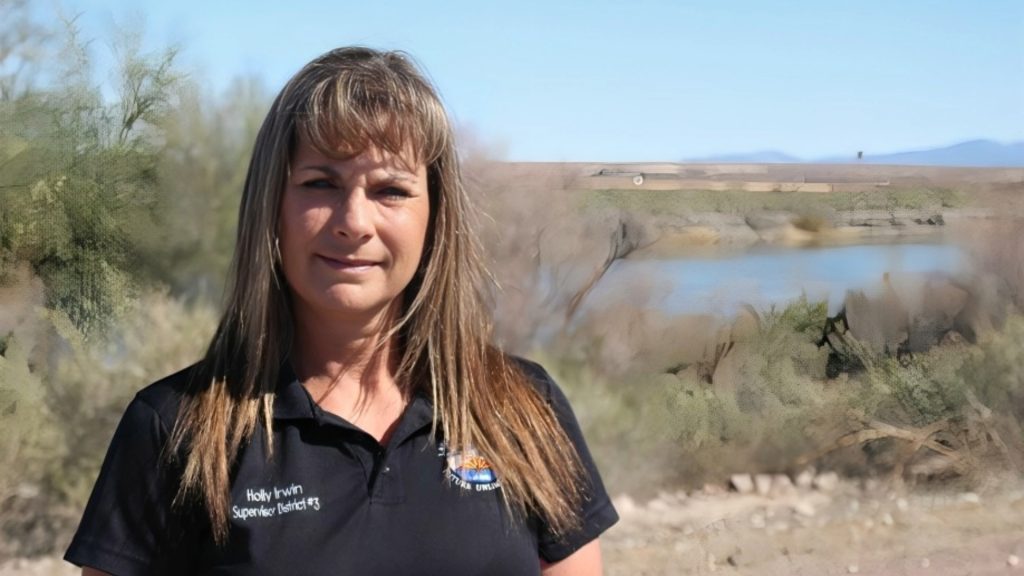
Irwin and Arizona Attorney General Kris Mayes believe unregulated groundwater pumping by corporate farms will only worsen land subsidence. Since 2015, when corporate farms began operating in the McMullen Valley, the region has sunk another 12 inches.
The Role of Saudi Arabian Companies in Arizona’s Groundwater Crisis
Saudi Arabian companies have played a significant role in exacerbating Arizona’s groundwater crisis through unchecked pumping of aquifers. According to Arizona Attorney General Kris Mayes, companies from Saudi Arabia and the United Arab Emirates have been leasing land in rural Arizona to pump unlimited amounts of groundwater at no cost.
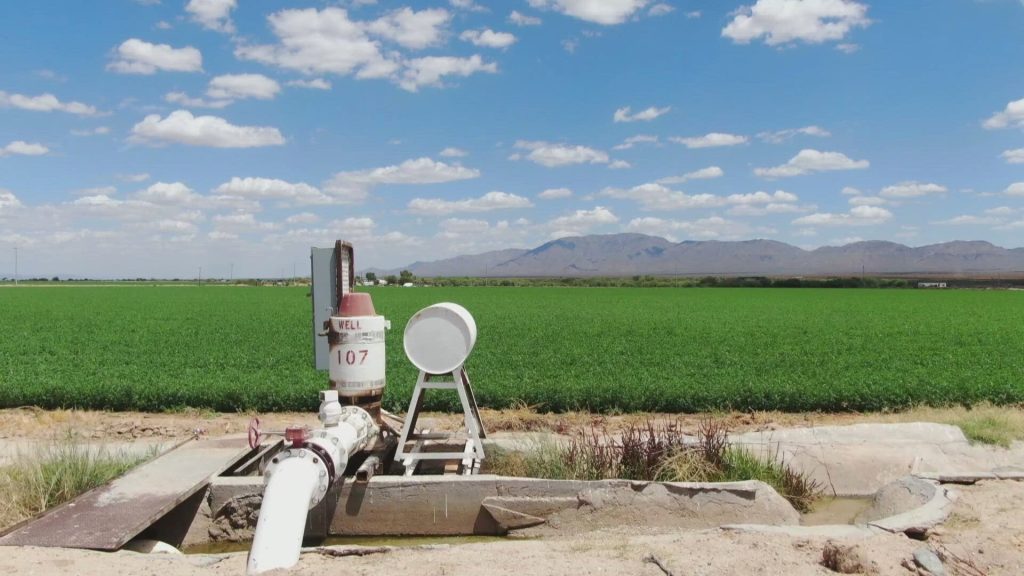
While Arizona’s lax groundwater laws have allowed foreign companies to take advantage of the state’s resources for years, residents of the McMullen Valley have experienced the devastating impacts firsthand in the form of land subsidence.
Land Subsidence and Infrastructure Damage
According to data from the Arizona Department of Water Resources, the land in McMullen Valley sank approximately three feet between 1991 to 2016 due to substantial groundwater extraction.
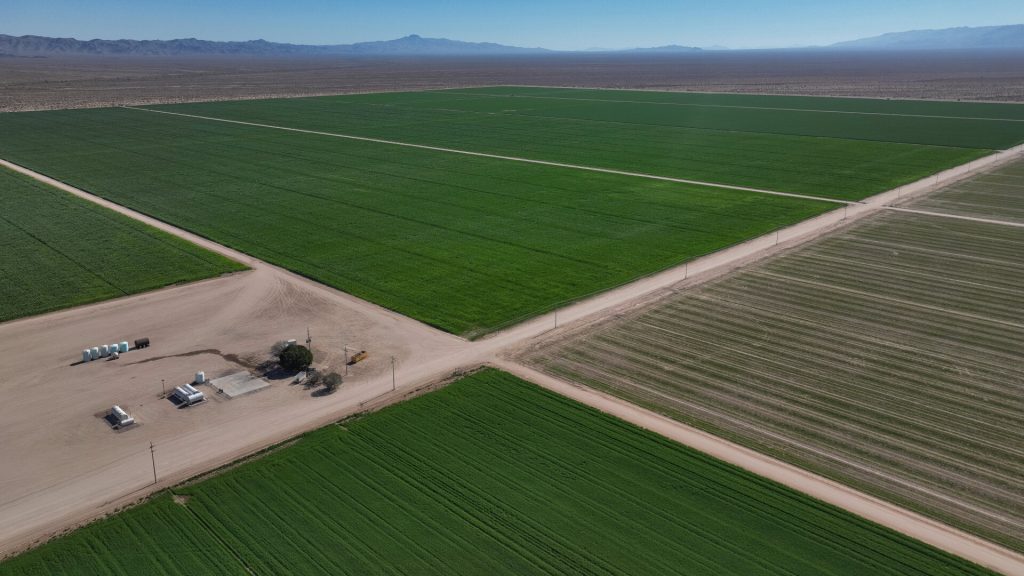
This level of subsidence has caused extensive damage to infrastructure and buildings in the communities as foundations and walls have cracked. The town of Wenden, in particular, has experienced devastating effects, sinking by four feet in total.
Depletion of Groundwater Resources
In addition to land subsidence, the rampant groundwater pumping by agricultural companies has depleted water resources in McMullen Valley. In 1957, wells only needed to be drilled 107 feet to reach groundwater, but now farmers and corporations must drill 542 feet to extract water.
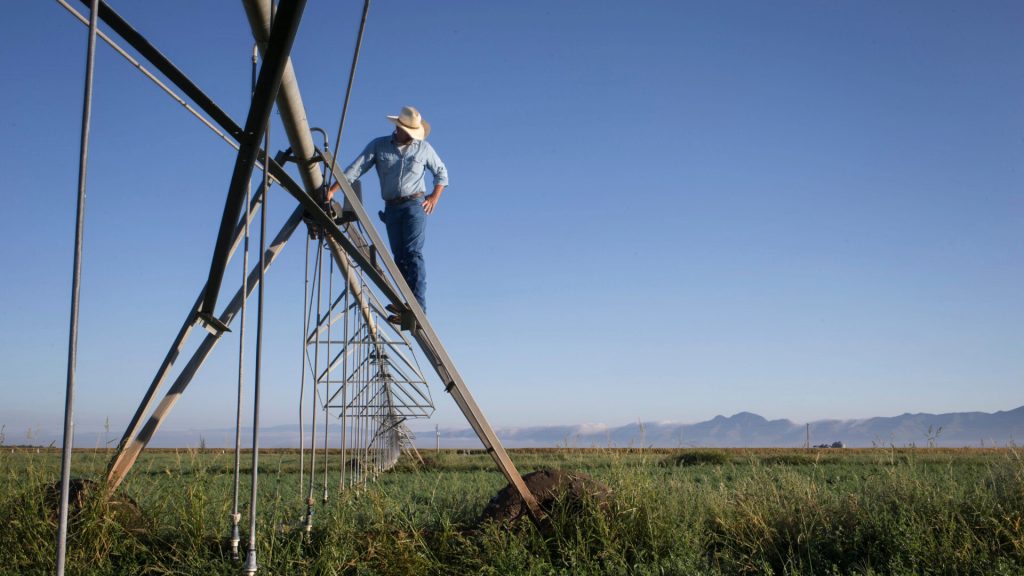
The deeper the wells are drilled, the more difficult and expensive it becomes to access groundwater. If left unregulated, groundwater levels will continue to drop substantially. According to hydrologists, groundwater is a finite resource, and excessive pumping can deplete aquifers faster than natural recharge rates.
Financial Costs to Arizona Communities as Wells Run Dry
The unregulated and unchecked groundwater pumping by companies from Saudi Arabia and the United Arab Emirates has resulted in devastating financial consequences for communities in Arizona.
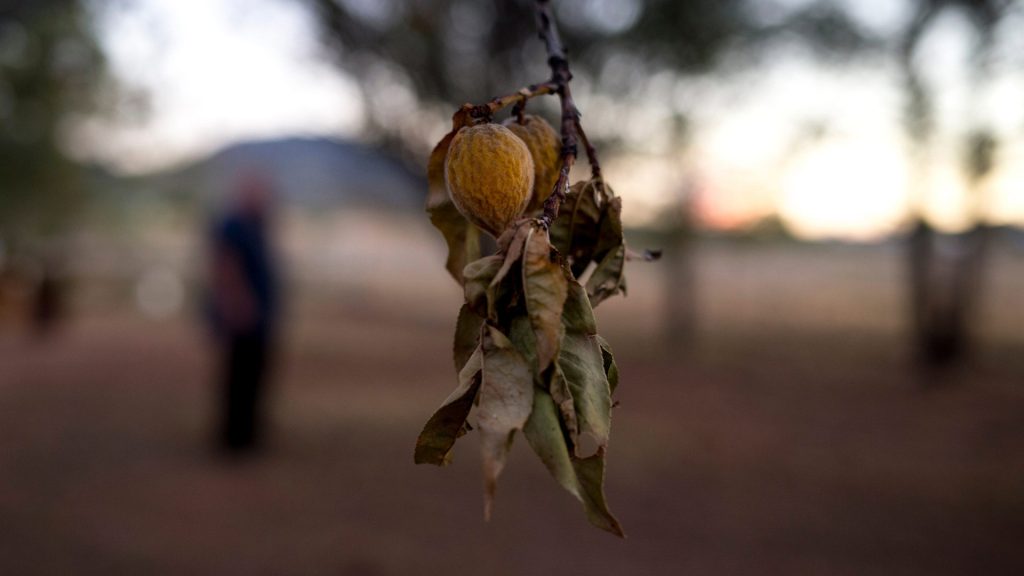
The sinking ground has led to severe damage to infrastructure and private property in the town. Foundations of homes and buildings have cracked, and roads and pipes have been damaged. Repairing the damage has cost taxpayers and homeowners millions of dollars.
Plummeting Property Values and Loss of Tourism and Tax Revenue
The environmental degradation and damage to infrastructure have significantly reduced property values in the region. Homeowners have seen the value of their properties drop by up to 50-75% as the water crisis has worsened.
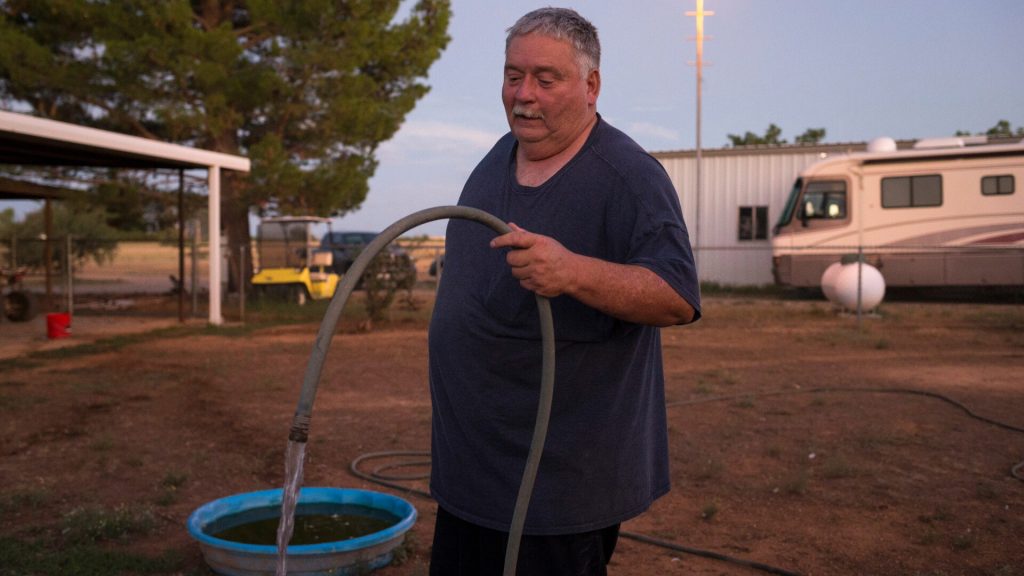
The tourism industry in La Paz County, which centers around recreational activities like boating, fishing, and bird watching along the Lower Colorado River, has declined sharply. Revenue from tourism has dropped, depriving local governments of tax income used to fund public services.
How Depleted Aquifers Are Causing Land Subsidence in Arizona
The excessive pumping of groundwater by agricultural companies in Arizona has caused aquifers to deplete, resulting in land subsidence that damages infrastructure and property. According to the U.S. Geological Survey, land subsidence occurs when large amounts of groundwater are extracted from aquifers made up of fine sediments.
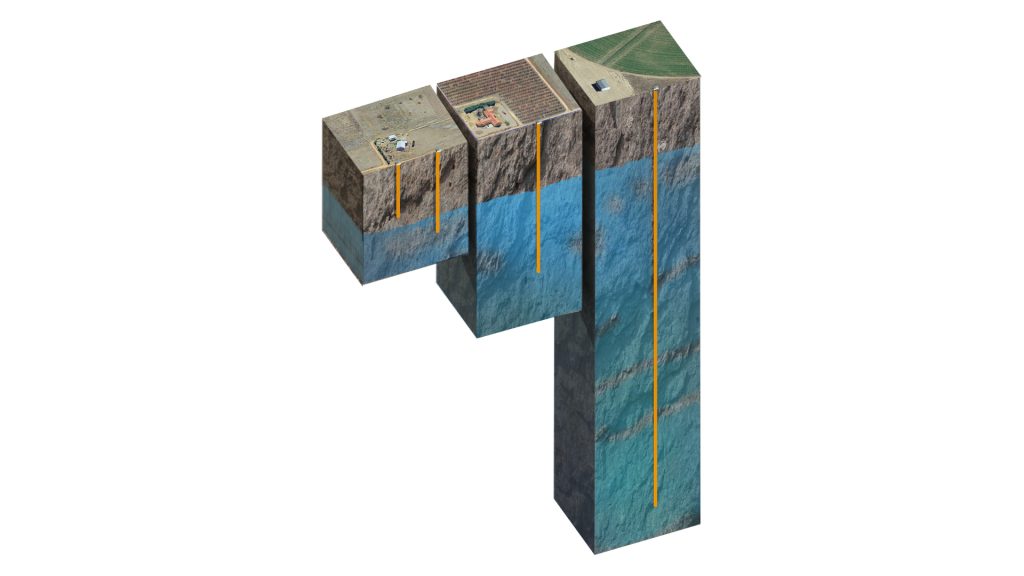
The groundwater pumping causing subsidence in McMullen Valley has primarily been conducted by agricultural companies from Saudi Arabia and the United Arab Emirates that have leased land in Arizona to grow forage crops like alfalfa.
Calls for Greater Oversight and Regulation of Groundwater Pumping
Groundwater depletion in Arizona has led to calls for stronger regulation and oversight of extraction practices. Unfettered access to groundwater has allowed companies from the United Arab Emirates to pump water from the McMullen Valley with few restrictions, leading to alarming rates of subsidence that threaten infrastructure and property.
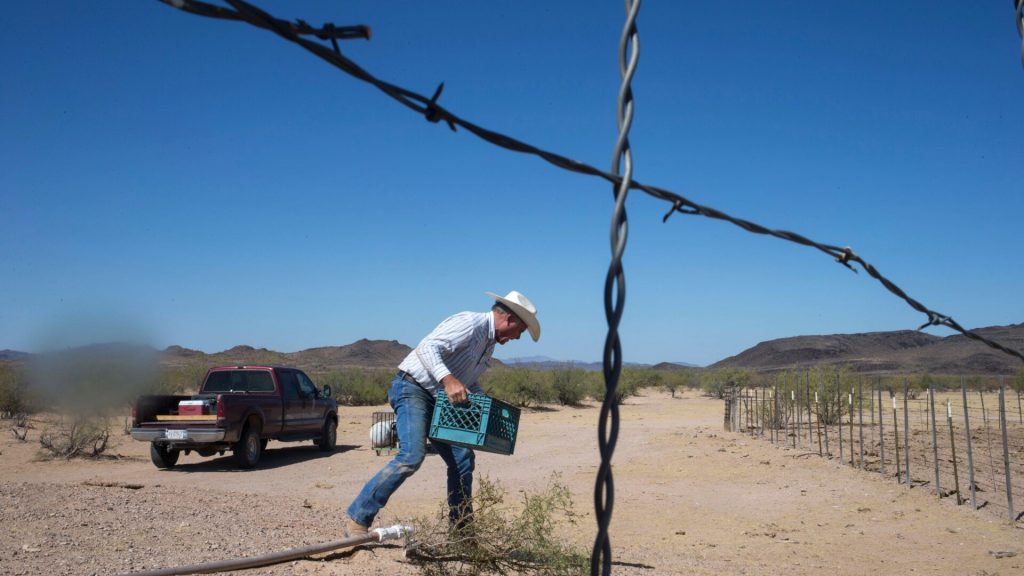
Local government officials have also proposed solutions for better groundwater management. La Paz County Supervisor Holly Irwin is working with officials from neighboring counties to establish Local Groundwater Stewardship Areas.
Potential Solutions to Replenish Arizona’s Groundwater Supply
The state government could establish more Active Management Areas (AMAs) to closely monitor groundwater levels and regulate usage. Currently, only certain populated areas like Phoenix, Prescott, and Tucson, as well as Pinal and Santa Cruz counties, are designated as AMAs.
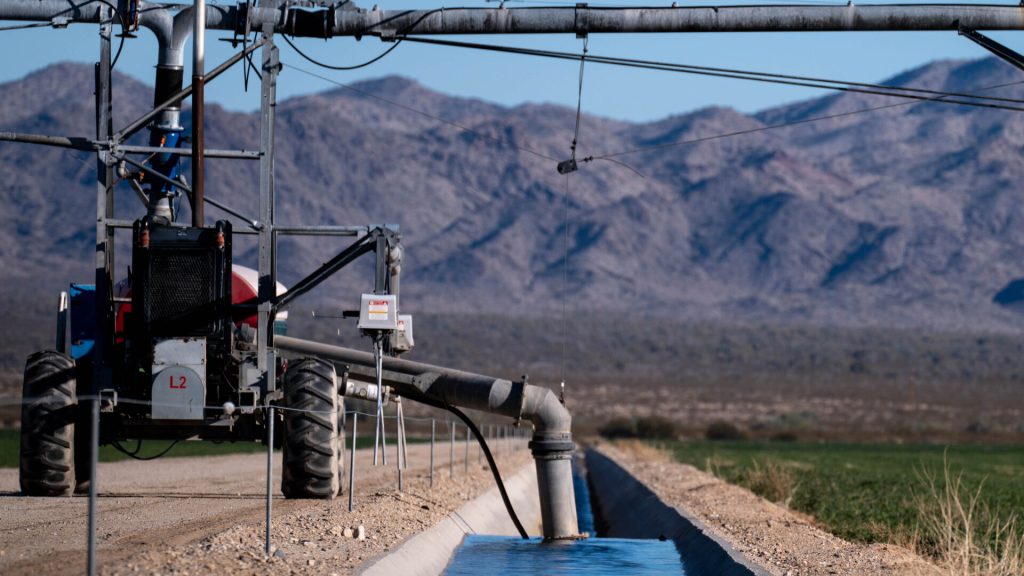
Expanding AMAs to other parts of Arizona would provide oversight on how much groundwater is extracted and the remaining supply. The Arizona Department of Water Resources (ADWR) director and governor also have the authority to temporarily halt new permits for deep groundwater wells to curb over-extraction, especially for corporate farms, as proposed by Mayes.
Protecting Local Communities From Collapsing Land and Drying Wells
In October 2021, Arizona Governor Katie Hobbs ended water use permits for a Saudi company operating in La Paz County after it had pumped millions of gallons of water to grow alfalfa. However, another UAE-based company continues similar operations with no restrictions.
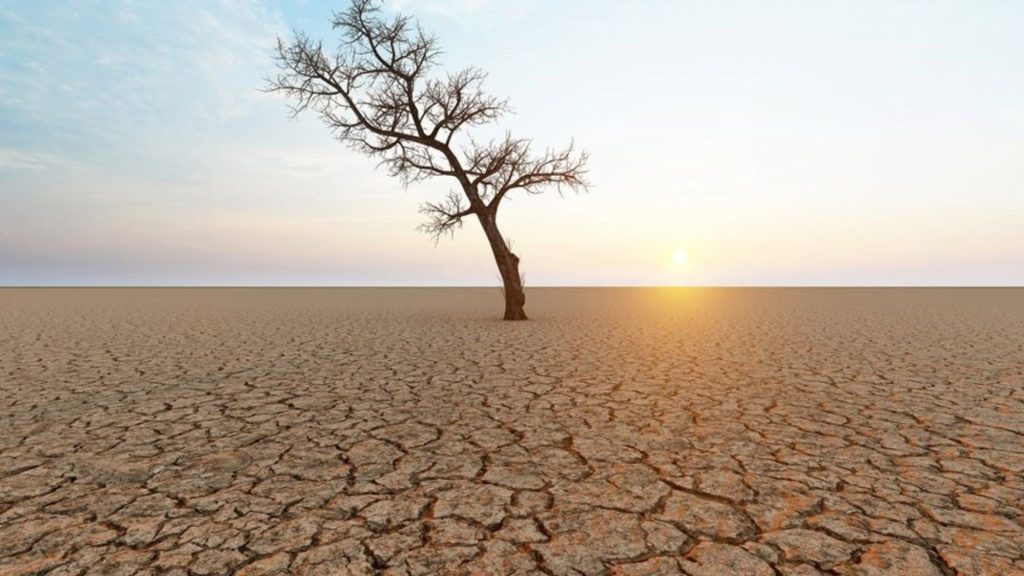
Tighter regulations and enforcement are necessary to curb overuse, limit damage to infrastructure, and safeguard groundwater for future generations. Sustainable practices that balance economic interests with environmental protection will help rural communities avoid becoming casualties of unregulated commercial activity.
Political Responses to the Arizona Water Crisis
Attorney General Kris Mayes has called for overhauling Arizona’s groundwater regulations to prevent further depletion of aquifers and damage from land subsidence. Proposed solutions include designating more Active Management Areas where groundwater use would be strictly monitored and regulated.

Local leaders have also pushed for updated hydrological studies to determine how much groundwater remains in McMullen Valley and find sustainable management solutions. La Paz County Supervisor Holly Irwin has warned that without intervention, wells will continue to dry up, and water quality will deteriorate.

